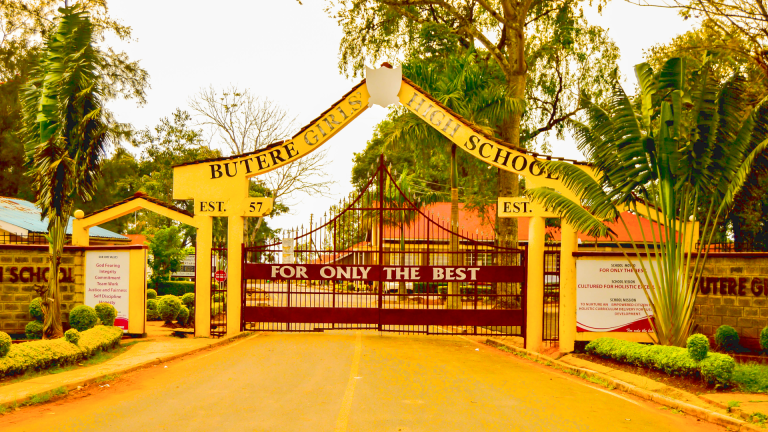In the 2025 Kenya Schools and Colleges National Drama and Film Festival, Butere Girls High School found itself at the center of a cultural and political storm, one that reignited national conversations about freedom of expression, youth agency and state censorship.
Their play, Echoes of War, written by ousted former UDA Secretary General Cleophas Malala (a political party led by President William Ruto) and performed by the students, tackled themes of governance, political betrayal and generational disillusionment. It was a powerful commentary inspired by Kenya’s Gen Z-led June 2024 protests- the same ones that took the nation by surprise when young people flooded social media and streets to demand accountability from political leaders. Coincidentally, President Ruto’s wife, Rachel Ruto, is an alumni of Butere Girls High School.
But as the curtains were about to rise on this bold piece at the regional level of the Kenya National Drama and Film Festival, the play was abruptly disqualified under murky circumstances. Officials cited “non-compliance” and “lack of approval,” but many observers and rights activists saw it as thinly veiled censorship. Parents, alumni and education stakeholders began to question: why was a student play- a fictional work- so threatening?
Nairobi Post now looks at the timeline of suppression involving Echoes of War:
On March 22, 2025, the play was successfully adjudicated at the Western Regional Drama Festivals. However, in late March 2025, the play was removed from the Western Regional winners’ gala, preventing its progression to the National Drama Festivals.
Following the disqualification, Butere Girls, backed by concerned citizens and civil society, moved to court. In a ruling delivered on April 3, 2025, Justice Wilfrida Okwany reinstated the play, ordering the school to facilitate the students’ travel to the national drama festivals in Nakuru that was set to take place from April 7- April 15, 2025. The court’s message was clear: students have a right to artistic expression, especially when their message is grounded in the lived realities of the country’s youth.
But when the team arrived in Nakuru, they faced more silent but effective resistance. On April 9, on the eve of the scheduled performance, police reportedly blocked former Kakamega Senator Cleophas Malala, the play’s writer, from accessing Kirobon Girls High School in Nakuru County, the venue of the festival. Government officials also barred journalists and photographers from covering the festival at Kirobon Girls, a departure from past practices where media played a central role in highlighting performances. The Butere Girls cast was reportedly denied basic stage infrastructure, including a functioning PA system and proper lighting.
On April 10, with no audience, no sound and no assurance that their work would be respected, the girls made a heartbreaking decision. They sang the national anthem, shed tears on stage and walked off without performing. The silence of Echoes of War became its loudest statement yet.
A history of suppressing artistic truths
But this isn’t the first time a school play has rattled the Kenyan establishment.
In 1997, Kamandura Secondary School was banned from performing a play about the dictatorship of a fictional African state. In 2001, a group of students from Nyanza were stopped from presenting a play addressing corruption in bursary allocation. And perhaps most notably, in 2019, the play It Is Well, performed by Moi Girls Eldoret, stirred controversy for highlighting domestic violence and political impunity. It, too, was initially blocked before public outcry forced officials to relent.
What these incidents reveal is a pattern: when students mirror the failures of leadership through art, those in power respond with fear rather than reflection.
Kenyan schools have always used drama as a mirror to reflect society’s ills. From gender inequality to poverty, corruption to generational trauma; these themes are not just academic exercises. They are the lived experiences of the students themselves. That’s why Echoes of War resonated far beyond Butere. It captured the frustration of a generation tired of being silenced, criminalized and underestimated.
Commentators have pointed out the irony of a state that claims to embrace youth empowerment, only to shut down student voices when they speak their truth creatively. Politicians such as Gideon Moi publicly defended the students, saying, “They are not enemies of the state. They are simply telling our truth through satire.”
What message is the government sending to our youth when they treat their expression as a threat? How do we tell them to engage constructively if even a stage play is met with intimidation and silent erasure? Echoes of War may have been silenced on stage, but it has amplified a much-needed national debate.

